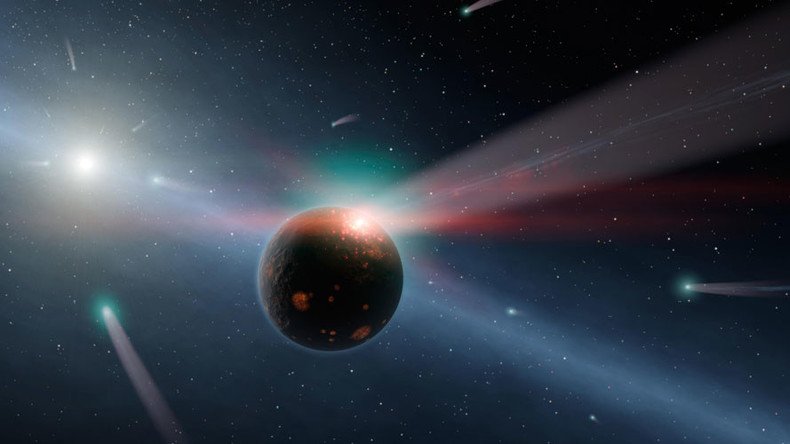Phew! Earth narrowly missed getting hit by an asteroid this week

Life as we know it almost came to an end Wednesday when an asteroid narrowly missed Earth as it whizzed by, but fortunately close only counts in horseshoes and hand grenades.
Most humans across the planet went on with their day as usual, oblivious to the event which NASA discovered just two days before it happened.
The US space agency announced the asteroid named 2016 RB1 passed about 25,000 miles (40,000km) from our collective home, roughly one tenth the distance between the Earth and the moon.
Small asteroid safely flew past Earth today at a distance of about 25,000 miles. More: https://t.co/9R8DDRvgYqpic.twitter.com/ouUS3bhh5k
— NASA (@NASA) September 7, 2016
Even if it had hit the Earth’s surface, its estimated size of 25 by 50 feet is much smaller than the one believed to have wiped out the dinosaurs.
It also passed the Earth at the South Pole, so any destruction may have been limited to scientific researchers, cruise ship passengers, and penguins.
NASA claims it’s the closest an asteroid will come to Earth for “at least the next half century.”
The space rock was discovered by astronomers from the Catalina Sky Survey at the summit of Mount Lemmon north of Tucson, Arizona.
Putting to scale asteroid #2016RB1, safely flying by Earth #Today at ~40,000km of distance https://t.co/pS4PyzAESApic.twitter.com/9Glah6GepF
— Massimo (@Rainmaker1973) September 7, 2016
An asteroid of similar size left more than 1,200 people injured when it hit Chelyabinsk in Russia in 2013.
While it would be great if scientists could give us a little more notice next time, objects of this size are hard to detect until they enter the Earth’s atmosphere, at which time it’s too late to call Bruce Willis.












